- Home
- Patricia McLinn
Sign Off Page 8
Sign Off Read online
Page 8
“Roger?” A woman’s voice called from a distance.
Roger Johnson swallowed down another sob. “In the barn, Myrna.”
“Roger? I saw a car—” A woman’s form appeared backlit at the open barn door. She paused then hurried forward. “Roger? What’s the matter? What’s going on here? Who are you?”
She was half a foot shorter than me and round. I found myself thinking Roger and Myrna Johnson could have modeled for Mr. and Mrs. Claus in their middle age . . . except for the sorrow in their eyes.
“My name’s Elizabeth Danniher. I’m with—”
“It’s okay, Myrna. It’s not her fault.” He dragged the back of one meaty hand across his eyes. “She’s a TV reporter. Wanted to hear about Rog.”
“You doing a story on Rog?” Her glare blended fear and hope.
“No, ma’am. I’m doing background on the Foster Redus disappearance.”
Both faces before me shrank, as if time-lapse photography had caught the skin tightening over the bone structure.
“Then you’d best leave—” Roger Johnson stood. “—because we got nothing to say about that man. Nothing.”
His voice was harsh. When Myrna laid a hand on his arm, I thought she meant to soothe him. Her words proved me wrong.
“Except we hope he’s dead and in hell.”
Chapter Eight
“C’mon in,” I hollered in answer to the doorbell, while I fiddled to get the earring’s post in place. I’d left the door unlocked, Wyoming style, but I had checked the vehicle in the drive before issuing the invitation. It was Mike Paycik in a four-wheel drive.
If you dare, I was tempted to add. But Paycik hadn’t even blinked at his first encounter with the interior before we left for O’Hara Hill. It could have been that the exterior prepared him.
“Where did you disappear to all afternoon? I’ve been trying to call. I thought you’d forgotten we’re going to Mona Burrell’s—” He interrupted himself with a low whistle. “That’s not your usual look.”
“I didn’t forget.” The earring finally slid into place. I grabbed my purse and said, “Let’s go. You don’t want to be late.”
Mike looked dazed, but I’d chosen my outfit for a particular audience—Mona. Skintight jeans and seriously fluffed-up hair to show I could play that game if I wanted to. Lustrous teal silk blouse buttoned to the neck and discreet makeup to show I didn’t feel I had to play that game. A London-tailored blazer of Irish tweed wool, Chanel perfume and hard-to-miss solid gold hoop earrings to show I knew the genuine article when I saw it. Better yet, I could afford it. And, finally, a pair of fine-grained but unadorned western boots with chunky heels to show I could, and would, kick some serious butt if needed.
The boots were the only weakness in the outfit. Having been bought only a couple hours ago at Sherman Western Wear, they didn’t have the casual broke-in air I would have preferred.
Mona’s house in a North Sherman neighborhood of neat frame houses reminded me of a woman’s hair that had been cut by an expert but was past-due for a trim—basically in good shape, but getting raggedy on the ends.
Tamantha answered Mike’s knock and ushered us into the living room. A camel-back sofa and a matching chair were covered in rose brocade-patterned material and had rolled arms about the size of oil drums. Above the couch three still-lifes and a starburst mirror had the stilted feel of being taken directly from a store display. The room was redolent with her scent. It made me think of church—incense and funerals—with an undercurrent of bordello.
Not that I had any right to criticize considering where I was living.
The lighting was superb. Soft, glowing, incredibly flattering. I know some aging actresses, not to mention TV personalities, who would have it in their contracts that they could only be shot in that lighting if they ever saw it.
Mona was draped in a corner of the sofa in skin-snugging black leggings and a white, cropped top, a dramatic foil against the rose.
“Please, sit down,” she drawled, peering at Mike from under her eyelashes and gesturing to the spot beside her.
He dropped into the chair. “Thanks.”
“Hello, Mona.” I took the spot on the sofa, sacrificing my sinuses for the cause. She flicked me a look, returned her attention to Mike, then, in perfect double-take, whipped her head back to me. I could practically hear her mind calculating costs and tabulating brand names.
“You want coffee, Mom?”
“What? Oh, yeah, Tamantha, bring us coffee.”
The child wore the same blue sweater she’d had on at KWMT, over a blouse that had started white but now had an uneven tinge of red, and too-short jeans.
Mike and I both used “please” and “thank you” when she asked if we wanted coffee, and again when she set it before us on the coffee table’s glass top. If Tamantha noticed the courtesy, she gave no sign.
“What is it you want to talk to me about?” Mona asked.
She slanted another eyelash-screened look at Mike, but she shifted her eyes to acknowledge my existence as well. So my outfit had accomplished some good. No wardrobe could perform miracles.
“We’re looking for the sort of insight only someone who knew Foster Redus can give us,” Mike started.
“I already told you what I know—Tom killed Foster because he couldn’t stand me being happy.”
And, just like at the rodeo, she said it in front of Tom Burrell’s daughter.
“What?” Mona asked after a moment of silence. Her eyes followed the direction Mike and I were looking. “Tamantha, go to bed.”
“It’s seven thirty.”
“Then go do your homework. In your room. Git.”
Tamantha looked at us solemnly when we said good-night, but said nothing. She started down the hallway that presumably led to the bedrooms. Her footsteps stopped, then came a sound of soft friction, like jeans sliding along a wall as someone sank down to the floor.
“I don’t believe in lying to a child,” Mona was saying.
Maybe, but I suspected Mona talked in front of Tamantha because she forgot the girl was there.
“When was the last time you saw Foster Redus, Mona?” Mike asked.
“The Monday after Thanksgiving. He left in the morning, saying we’d go to Cody for dinner and dancing Friday night.” Her eyes filled, but didn’t overflow. “I never saw him again.”
I reached over and patted her arm. “Don’t give up hope. Maybe Foster just took off. He might pass through this way again, for old time’s sake.”
“He’s dead,” she snapped.
“Nobody knows for sure. It could be he ran off and—”
“He wouldn’t have left without me. He’s dead.”
The same sentiment, the same certainty as Marty Beck. But, if Redus had ducked out on these women, I’d bet Mona was the one he should fear.
“So when Foster left that morning,” Mike dove in, “everything was fine between the two of you?”
“I told you, he was taking me to dinner and dancing in Cody that Friday. That sound like a man who doesn’t love a woman?”
“Weren’t you worried about Foster going to see Tom?”
“He didn’t say he was going to Tom’s.” She took a long swallow of coffee, lifting her lashes to stare at Mike. “I didn’t hear Foster had been there until it came out about the blood.”
“Hmmm.”
Her head turned to me. “What does that mean?”
“Just thinking. It seems odd that Foster told Gina, but he didn’t tell you. Especially since it was your ex-husband he was going to see.”
“He didn’t like me to worry. He didn’t say anything to me.”
She was lying. From Mike’s expression, he was as sure of it as I was—I sure hoped I hid it better than he did. Mona knew why Foster had gone to Burrell’s ranch, and she wasn’t going to tell us.
Mike picked up, “Some men aren’t good at telling their woman what’s on their mind. They hold it all inside. It can make a woman feel real lonely.”
“Foster wasn’t like that. He didn’t shut me out, he didn’t look down on me. We talked a lot. About where he was going and the kind of life we’d have. How much better it would be than the crap work in this penny-ante county.”
“Foster talked to you about arrests he made?”
“Nothing he wasn’t supposed to tell,” she said. “But a man with all that stress and responsibility, well, sometimes he had to let off steam.”
“Responsibility?” Mike asked in a neutral tone.
She nodded, her hair tipping forward. “Law enforcement officers have such a burden. Especially the ones who really want to look after the law-abiding citizens and not just coddle the dregs of society that the government’s always wrapping up in cotton padding. A law enforcement officer risks his life every minute of every day, and he has better things to do than toe all those rules and regulations that twist around him so tight he can’t give a good belch.”
It was eerie, having never met Redus, to be so certain we were hearing his voice—perhaps from beyond the grave—through the medium of Mona.
“Mona? You said the other night that Foster was practically running the sheriff’s department. What did you mean?”
“It was common knowledge. Widcuff only won the election because nobody else ran. Next election, Foster would have run. And he would have won.” I restrained myself from pointing out he couldn’t both run for sheriff and shake the dust of Cottonwood County from his boots. “Then he would have cleaned out all those tight-assed deputies who thought they were so much better than him.”
If Redus had been murdered, the entire roster of the sheriff’s department might belong on the suspect list, headed by Widcuff. “Is that why you didn’t go to the sheriff’s department when Foster didn’t return?”
Beneath even brush-strokes of blush, a rusty red pattern showed across her cheeks. Gina Redus had to be right; Mona hadn’t reported Foster missing for six days because she’d thought he was with another woman.
“I thought Foster was on a special case. Undercover, and he couldn’t shake loose to call me. Or maybe he didn’t want to expose me to danger. He went up against some real dangerous people.”
“You could have called Sheriff Widcuff. Surely he would have known if Foster was on a case—”
She snorted. “Him? He’d be the last to know. Foster worked over his head. And Widcuff hated him for it. He was jealous, right to the bone. Foster’d made a name for himself, and Widcuff’s going nowhere. So you don’t think I’d go to Widcuff telling him anything, do you?”
“Do you know anything, Mona?” As she parted her lips, I hurried on, fearing hearing another refrain in her litany on Tom Burrell’s guilt. “Anything concrete? Anything new?”
She drained her cup, but instead of putting it down she touched its rim to her lower lip, dragging it slightly. “No.”
I thought it was a lie. Maybe.
“If you knew something about Foster’s disappearance, who would you go to?” Mike asked.
A shrewdness crossed Mona’s eyes. “Thurston Fine, maybe.”
“Fine?”
Her chin lifted at my surprised repetition. I’d expected her to say Ames Hunt, both because of his position and because she’d known him since high school. “Yeah. He knows a lot of important people ’round here, the most important. And he hasn’t fallen for the fairy tale of the Great Tom Burrell. He sees Tom’s a nobody. A hick could’ve-been who never went anywhere.”
She cradled her cup in both hands and brought it near her lips again, apparently liking the effect.
“That’s what drove Tom crazy about Foster and me, you know. We were going to go places and do things he’d forgotten how to even dream about. He gave up, but Foster was my ticket out. Tom couldn’t stand that.”
Not being up to any more go-arounds on Mona’s favorite track, Mike and I took our leave. Mona made one attempt to detach Mike. But she didn’t seem particularly disappointed when he sidestepped. Maybe after all the talk of Foster it was too painful to be with another man tonight.
Tamantha awaited us beside Mike’s four-wheel drive, parked in the street because a red Mustang with a “Blondes ARE More fun” bumper-sticker was parked at the end of the drive. I hadn’t heard a sound that betrayed Tamantha’s departure from her listening post or her escape from the house.
“Tamantha, you shouldn’t be out. It’s late, and your mom’ll be worried.”
Paying no heed to Mike, she said to me, “You’re going to help my Daddy.”
I opened the passenger door and sat to bring us to eye-level. I considered crouching, but that would have seemed condescending with this old woman in a child’s skin. Besides, I wasn’t sure I could crouch in these jeans.
“Tamantha, I’m going to tell you the absolute truth. But I have to ask you not to tell anybody. You understand?” She nodded. “Good. When you talked to me the other day at the television station, it got me looking into this case that your father’s involved in. I—we—Mr. Paycik and I—are talking to people and trying to find out things about what happened to Foster Redus.”
“Oh, him.” She wasn’t one of his fans judging from her clenched hands. “That’s who some people said my Daddy killed. They’re wrong.”
“Your mother agrees with the people saying that.”
“Nobody listens to her,” she said with brutal clarity. “Daddy didn’t kill him. You prove that. That’s what you promise on TV.”
I shook my head. “No. That’s not what I promise. I promise to look into problems. Some problems can’t be fixed, and some get fixed but in a way you don’t like. That might happen, Tamantha. Because I’m not talking to people to help your Daddy, I’m doing it to find the truth. If your Daddy’s involved—” Being straight with the kid had its limits, I couldn’t come out and say if your Daddy’s a murderer. “—my finding out the truth could get him put in jail.”
She stared at me a long moment.
“You find out the truth.” She granted permission like Queen Isabella giving Columbus the okay to find the New World. “You talk to my Daddy and you’ll know. He didn’t kill that man.”
Tamantha’s words stayed with me as Paycik and I sat in a back booth at the Holiday Inn coffee shop, while I swilled coffee and he tossed questions around. He’d suggested it as a safe place since locals mostly left it to the tourists.
I held a fluted plastic saltshaker between my thumb and forefinger and tilted it to circle on its rim while he kept referring to it as an investigation and the cast of characters as suspects. I wasn’t so sure.
It felt as if Foster Redus’ situation and the people connected to it were as much in limbo as I was.
But I could make a decision. I could say enough. I could leave Sherman, pursue a talk show job and leave this chapter for good. I could end my limbo.
“We don’t even know there was a murder,” I objected at one point. “And wouldn’t the local authorities pursue it harder if they thought there was?”
“Maybe Mona offered an answer to that.” Paycik kept his eyes on the spinning saltshaker. “Widcuff might not be an Einstein, but he’s gotten himself elected more than once. You don’t do that without a strong sense of self-preservation. There was a commission last fall to look into the sheriff’s department, so Widcuff was under pressure. Last thing he’d want would be a hungry young lion eager to take over.”
“So Widcuff didn’t go gung-ho with the investigation because he was too busy being pleased not to have Redus around?”
“Could be. Or—” He put his hand over mine, stilling the shaker. “He could have taken a more active role in getting Redus out of his hair.”
“Don’t get carried away, Paycik.” I slid my hand free, leaving the shaker in his custody. “Proof, evidence—remember? So far, they’re sorely lacking. C’mon, let’s go. Not even the caffeine’s going to keep me awake much longer.”
We each tossed a few dollars on the table.
On the way to my house, we passed a neon sign with a
bowlegged cowboy downing a drink. Below it, a wooden door swung open, and loud music spilled out. In front was a red Mustang with the bumper sticker proclaiming “Blondes ARE more fun.”
So much for painful memories.
“The sheriff seems a good direction to start asking questions,” Paycik said as I climbed out of his vehicle in my driveway. “And we can share the answers.”
Oh, what the hell. “Okay.”
So, I’d pledged to share answers. But I’d said nothing about sharing questions. And that’s what kept running through my head as I flossed and brushed, washed and moisturized.
Questions that didn’t intrude on my comfort zone because they were well removed from my life, yet I hadn’t asked these questions at the coffee shop. Because they had to do with jealousy, a woman’s heart, and a love that took terribly wrong turns on the happily-ever-after road. They had to do with the hero worship of a boy who’d gone on to fame and glory. They had to do with the softening of an old teacher’s eyes and the hardening of a sheriff’s.
They had to do with a suspected killer whose impact on people was so strong that the possible victim sometimes blurred toward incidental.
What kind of man inspired that reaction?
I intended to find out.
Chapter Nine
The phone woke me Tuesday morning.
I was dreaming. Something about teaching a second-grade class in what looked like a prison from a James Cagney movie. When the sound intruded, my dream closed around it, like a tree growing around a rope. An alarm was ringing, and all the second-graders in prison uniforms were being closed up in locked cells, except an oversized one who looked like Mike Paycik and a wispy-haired girl who stared at me with stern expectation.
The fourth ring registered as the phone. I fumbled for the receiver.
“Elizabeth Margaret. It’s mother.”
“What’s wrong? Is something wrong?”
“Nothing’s wrong,” she said with a sound between a chuckle and cluck. “Your father and I want to know how you are.”

_preview.jpg) Almost a Bride (Wyoming Wildflowers Book 1)
Almost a Bride (Wyoming Wildflowers Book 1)_preview.jpg) Prelude to a Wedding (The Wedding Series Book 1)
Prelude to a Wedding (The Wedding Series Book 1)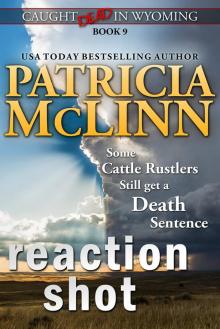 Reaction Shot (Caught Dead in Wyoming, Book 9)
Reaction Shot (Caught Dead in Wyoming, Book 9)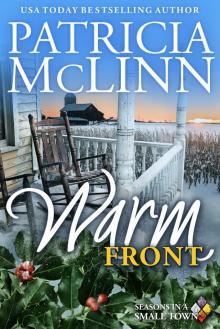 Warm Front
Warm Front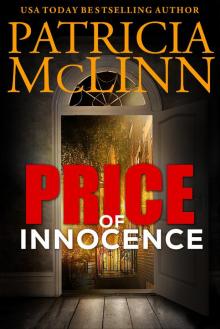 Price of Innocence
Price of Innocence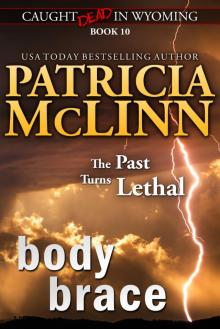 Body Brace (Caught Dead in Wyoming, Book 10)
Body Brace (Caught Dead in Wyoming, Book 10)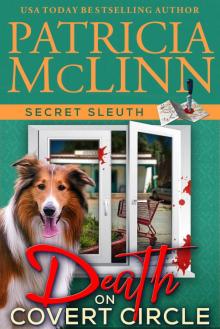 Death on Covert Circle
Death on Covert Circle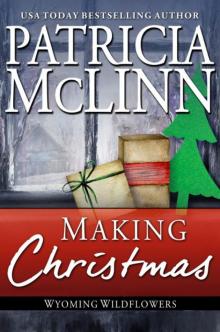 Making Christmas
Making Christmas Death on Torrid Ave.
Death on Torrid Ave.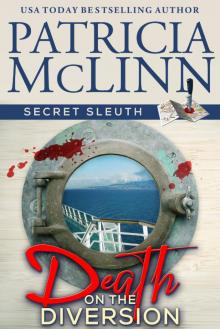 Death on the Diversion
Death on the Diversion The Rancher Meets His Match
The Rancher Meets His Match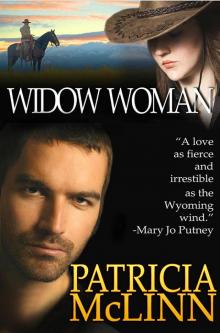 Widow Woman
Widow Woman The Runaway Bride
The Runaway Bride Hoops
Hoops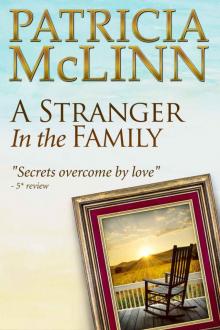 A Stranger in the Family (Book 1, Bardville, Wyoming Trilogy)
A Stranger in the Family (Book 1, Bardville, Wyoming Trilogy)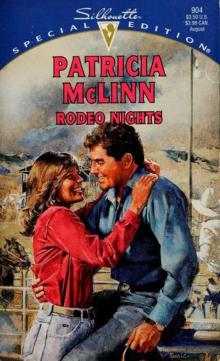 Rodeo Nights
Rodeo Nights Wedding Series Boxed Set (3 Books in 1) (The Wedding Series)
Wedding Series Boxed Set (3 Books in 1) (The Wedding Series)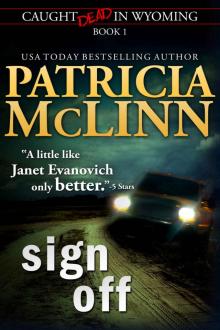 Sign Off (Caught Dead in Wyoming, Book 1)
Sign Off (Caught Dead in Wyoming, Book 1)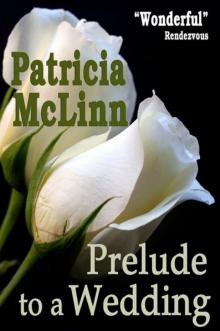 Prelude to a Wedding
Prelude to a Wedding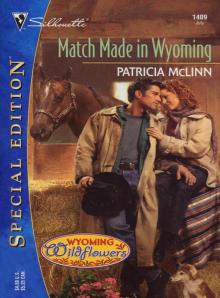 MATCH MADE IN WYOMING
MATCH MADE IN WYOMING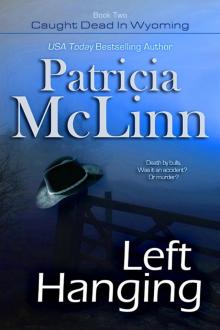 Left Hanging
Left Hanging What Are Friends For?
What Are Friends For?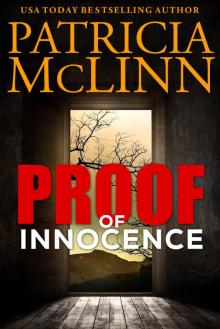 Proof of Innocence
Proof of Innocence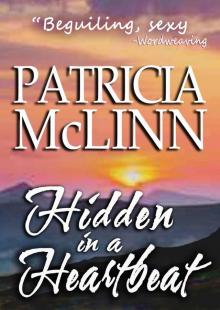 Hidden in a Heartbeat (A Place Called Home, Book 3)
Hidden in a Heartbeat (A Place Called Home, Book 3) Baby Blues and Wedding Bells
Baby Blues and Wedding Bells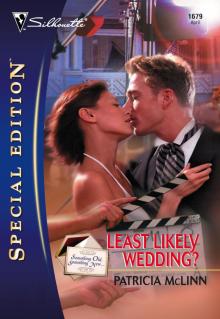 Least Likely Wedding?
Least Likely Wedding? Heart Stealers
Heart Stealers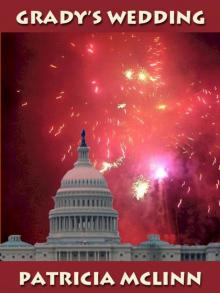 Grady's Wedding
Grady's Wedding Right Brother
Right Brother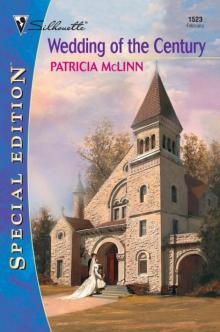 Wedding of the Century
Wedding of the Century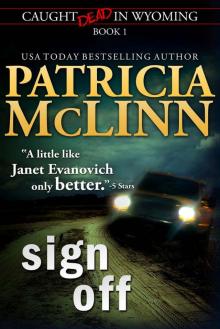 Sign Off
Sign Off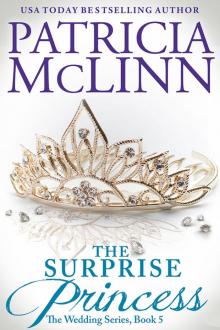 The Surprise Princess
The Surprise Princess Wyoming Wildflowers: The Beginning
Wyoming Wildflowers: The Beginning